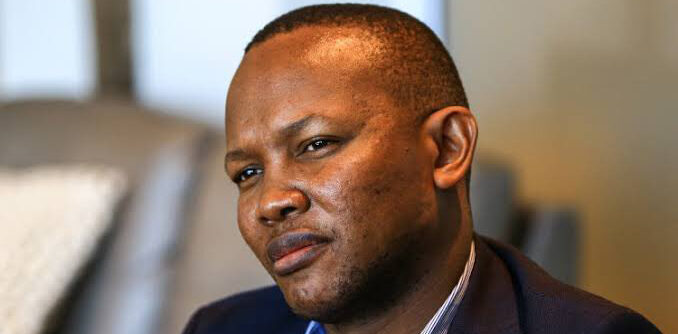If ever there was a poster child for the old saying “justice delayed is justice denied”, it is Nkosana Makate.
For almost two decades, Makate has been locked in endless battles with Vodacom over the “Please Call Me” idea – an invention that made Vodacom billions of rands, while the man behind it has faced nothing but brick walls and courtrooms.
What should have been a straightforward case of rewarding innovation has turned into a tragic comedy of errors in our so-called justice system.
Let’s be honest: the wheels of justice in South Africa don’t just turn slowly; sometimes, they spin backwards.
Here’s a man, a former Vodacom employee, whose idea transformed the way South Africans communicate.
Everyone knows about Please Call Me. Everyone knows Makate came up with it. Yet, instead of a handshake and a fair cheque, he’s had to fight, year after year, for what’s rightfully his.
First, back in 2016, the highest court in the land – our Constitutional Court – ruled that Vodacom must pay Makate reasonable compensation.
Simple, right?
No.
The two parties failed to agree, so it went to Vodacom’s CEO, who, after much “consideration,” decided R47-million was enough. Makate disagreed, and who can blame him, considering the revenue generated?
Off to court they went again.
The High Court said the CEO’s offer was not good enough and sent it back.
Vodacom appealed.
The Supreme Court of Appeal (SCA) then jumped in and substituted its own order, giving Makate a percentage of completion method revenue, which is the best way to accurately track and measure the revenue earned on a long-term contract.
But instead of clarity, this just created more confusion because Makate never cross-appealed, so the SCA arguably lacked the authority to make that call.
Now, in 2025, the Constitutional Court has had to step in again.
Their judgment is clear: the SCA messed up. It didn’t provide proper reasons for its decisions, didn’t consider key evidence, and didn’t explain why it sided with Makate.
So the matter goes back again!
Another round, another panel, more delays.
Is this justice? Or is it a cruel joke?
In a country plagued by inequality and power imbalances, Makate’s saga is a warning. Big corporations can drag things out for years, wearing down the little guy.
Our courts, instead of delivering closure, get bogged down in technicalities and process.
Makate deserves better. South Africa deserves better.
Until our justice system can deliver timely, decisive judgments, justice will remain a stranger for ordinary people.
And that is the real tragedy of the Makate case.
It’s time to ask: who really benefits from this system?



